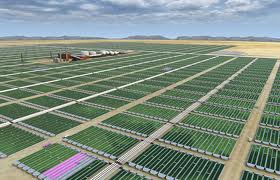Nine partners from seven countries have joined in an innovative project to show that ethanol, biodiesel and other bio-products can be produced from algae on a large scale.
The BIOfuel From Algae Technologies (BIOFAT) project, largely funded by the European Commission’s seventh framework programme, aims to demonstrate that biofuels made from microalgae can offer energy efficiency, economic viability and environmental sustainability.
The microalgae-to-biofuel demonstration project aims to integrate the entire value chain in the production of ethanol and biodiesel. The process will begin with strain selection and continue through biological optimisation of the culture media, monitoring algae cultivation, low energy harvesting and technology integration.
The development team will train on existing prototypes in Israel, Portugal and Italy, before scaling up the process to a 10-hectare demonstration plant.
[ad]
Algae’s potential for providing high-energy-yield products with low greenhouse gas emissions is well known, but the downsides are less clear. Hence, the BIOFAT partners say they will be seeking to maximise the benefits while minimising environmental impacts.
Along the way, the project partners say they will be introducing the planet to the algorefinery, a facility that can produce high-value co-products in addition to biofuels.
The project is being undertaken by a transnational consortium drawn from the academic, industrial and public sectors. It includes the University of Florence (IT), A4F-AlgaFuel, Ben-Gurion University, Fotosintetica & Microbiologica, Evodos, AlgoSource Technologies, IN SRL and Hart Energy.
The project is expected to last four years, and produce about 900 tons of algae annually on the 10-hectare plant.



